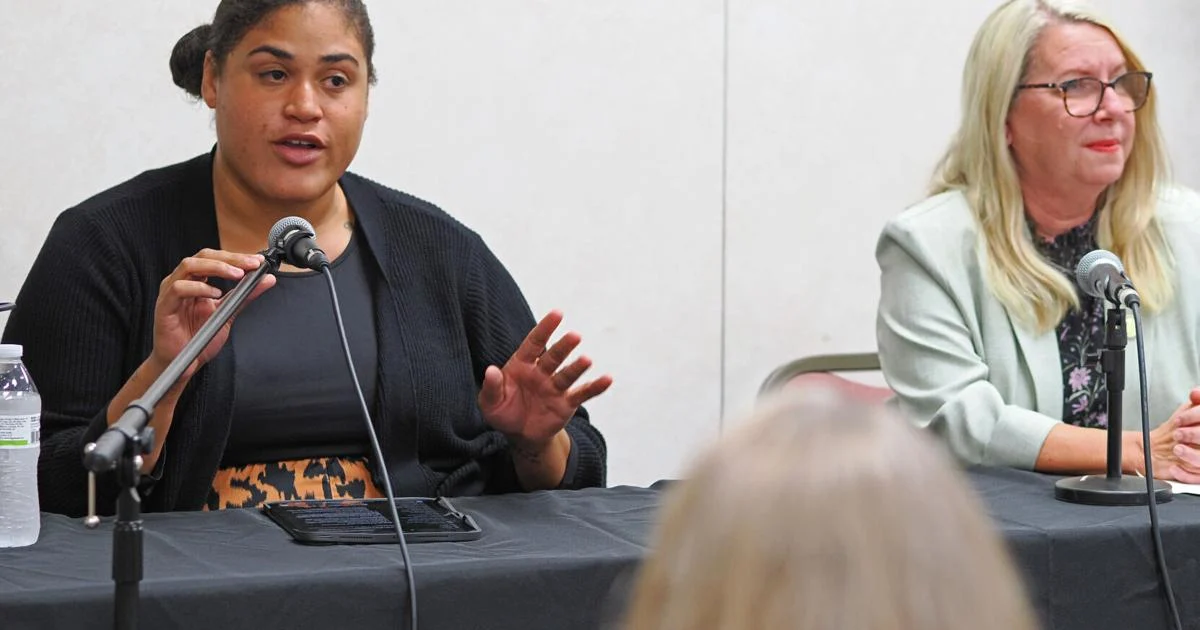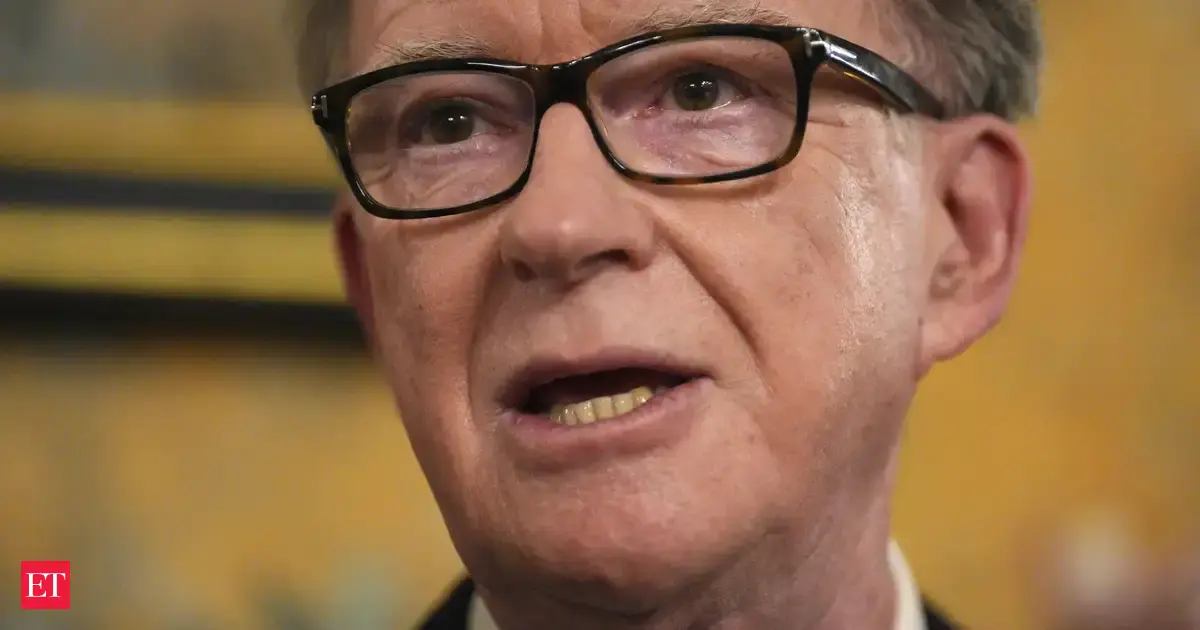
Kitchen-table issues — housing costs, energy bills and jobs — dominated the conversation at a forum for Shenandoah Valley candidates for the Virginia House of Delegates earlier this month.
And despite sitting on opposite sides of the aisle, candidates found much they agreed upon.
Del. Ellen Campbell, R-Rockbridge, who holds the 36th District seat her late husband vacated upon his death in 2022, said one of the biggest challenges for housing development is red tape.
“We need to back off regulations,’’ she told a full house at the Sept. 3 forum at the Augusta County Government Center in Verona hosted by the Staunton News Leader and the Victory Worship Center.
The 36th District includes Staunton, Waynesboro and parts of Augusta and Rockbridge counties.
Speaking with The News Virginian after the forum, she said housing regulations should be as local as possible; state regulations on top of local regulations have become too burdensome. Moreover, the needs of the Shenandoah Valley are different from more densely packed regions such as Tidewater and Northern Virginia.
Del. Chris Runion, R-Rockingham, in the neighboring 35 District agreed, saying regulations at all levels have contributed to a housing shortage in the Shenandoah Valley and Virginia.
Runion’s district includes Bath and Highland counties and parts of Augusta and Rockingham counties.
The state says there is a roughly 200,000-unit shortage across Virginia. The Virginia Realtors trade group meanwhile reports the average price of a single-family house in Virginia was $435,000 in July, 2% higher than the same month in 2024. Online real estate platforms say the average in Augusta County is between $335,000 and $428,50.
Makayla Venable, Campbell’s Democratic challenger, didn’t disagree that more support is needed, especially for first-time homebuyers. She said state resources for housing should not solely be funneled to urban Northern Virginia.
On the matter of labor unions, candidates disagreed but not significantly.
Runion’s Democratic opponent, Dr. Jena Crisler of Rockingham County, said she is satisfied with Virginia’s “right to work” law, which protects workers who join unions voluntarily but does not allow unions to compel membership.
She emphasized that union membership remains voluntary in Virginia but collective bargaining has nevertheless contributed to better pay and fringe benefits for all workers. Historically, she said, unions have fought for many of the things American workers take for granted: “Through collective bargaining, we have the 40-hour work week and paid vacations.”
Repealing the right to work, Runion said, would lead to an exodus of workers and businesses out of the commonwealth to the Carolinas and Tennessee.
“Businesses won’t choose Virginia,” said Runion.
What Runion did not note is that the unemployment rate ticked up 4.3% from 4.2% in July, thanks in large part to President Donald Trump’s cuts to the federal workforce and spending on major contracts. Virginia lost its No. 1 rank as CNBC’s “best state to do business” this year to North Carolina, another right-to-work state.
Republican Lt. Gov. Winsome Earle-Sears, now running for governor, has claimed her Democratic opponent, former U.S. Rep. Abigail Spanberger, D-7th, would overturn the state’s right-to-work status. Spanberger has promised she would not, but has said she would like to work with lawmakers to finesse the law.
Campbell said she is not outright opposed to unions but favors the current right-to-work status. “If we force unions, we will lose small businesses,” she said.
Venable said she supports workers’ “fight for more pay,” especially with jobs being cut in Virginia every month, and she said responsible union organizing can make that possible.
The rising demands on Virginia’s energy sector — driven by the development of more and more data centers in what is already the data center capital of the world — provoked thoughtful comments from all four candidates. Public utilities in the state, including the largest, Dominion Energy, have been pushing to develop alternative energy sources, long criticized by Republicans. Those same utilities have promised if they cannot generate more power, they will have to charge customers higher rates.
Campbell said Virginia cannot let data centers dictate every aspect of the energy sector.
“I’m not opposed to solar and wind,’’ she said.
Runion was less open-minded.
He said Virginia’s Clean Economy Act of 2020 should be repealed. The legislation mandates the commonwealth’s utilities transition to 100% carbon-free electricity by 2045 or 2050, depending on the utility.
Runion said he favors “open and transparent’’ discussions about energy, including the costs associated with alternative energy.
Both Crisler and Venable want more clean energy in Virginia.
“I’m a total proponent of clean energy,’’ Crisler said. “There are many new technologies coming out.”
“Invest in clean energy,’’ said Venable, who added that solar and wind will be important to the commonwealth’s future.
Early voting in this year’s elections started Friday. Election Day is Nov. 4.
Bob Stuart (540) 932-3562
rstuart@newsvirginian.com
@oldyankee53 on X
Get Government & Politics updates in your inbox!
Stay up-to-date on the latest in local and national government and political topics with our newsletter.
* I understand and agree that registration on or use of this site constitutes agreement to its user agreement and privacy policy.



